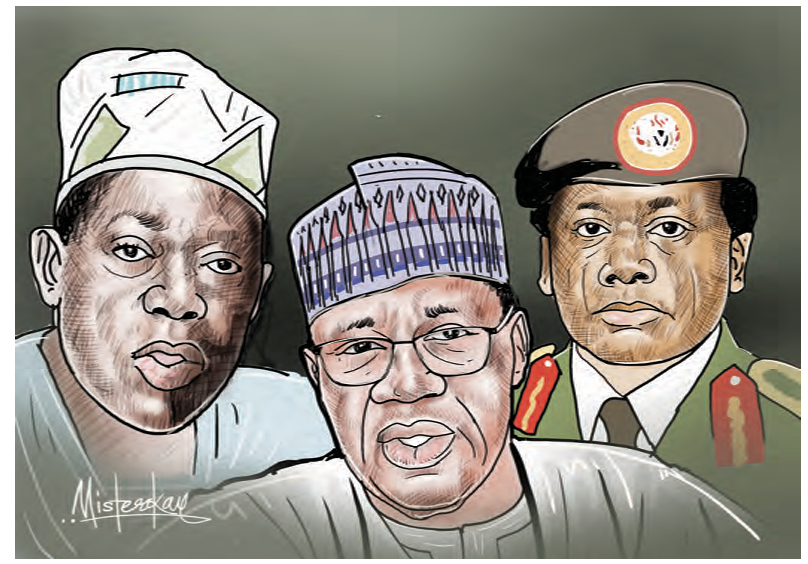…Faults Deployment Of Military For Elections
ABUJA – Former President Goodluck Jonathan on Tuesday said when Nigerians reject bad behaviour, the political class will behave normally.
Speaking at the public presentation of a book by a former Inspector General of Police, Solomon Arase, in Abuja, Jonathan stated that the political class would adapt once society starts demanding that the right things be done.
He said, “We, Nigerians, celebrate the wrong thing. And I believe one day, the country will get to the level where people will reject bad behaviour. And when we get to the level that we reject bad behaviour, this issue will not happen again.
“I believe one day, we Nigerians will say we no longer accept the wrong thing. And the day we all collectively say we no longer accept the wrong thing, we, the political class, will behave normally. People must reject us if we behave wrongly.”
Jonathan expressed hope that Nigeria would evolve to a point where bad political behaviour is universally rejected.
“Maybe one day, we will have two big buildings in Abuja where we will put pictures of people— whether dead or alive—who have messed up this country so that their grandchildren will know their forefathers were part of Nigeria’s problems,” he stated.
Jonathan criticised the deployment of military personnel for election duties in Nigeria, saying that it overstretched the military.
He said that elections should be primarily managed by the police and the Independent National Electoral Commission (INEC).
According to him, in most other countries, the Air Force and Army are used to transport election materials to dangerous areas, and not providing security at polling units as done in the country.
Jonathan said, “Having been the president of this country before, when you talk about internal security, it’s an area that touches my heart. And especially when you talk about election security, again, it’s an area that touches my heart. One gets worried when it comes to Nigerian elections.
“In fact, here we overstretch the Army. In most other countries, the military doesn’t get involved in the day-to-day management of elections.
“Some countries use them to manage strategic systems, such as transporting election materials to dangerous areas. But manning polling booths and staying around polling stations—military personnel are never used for such duties.”
Jonathan cited examples from Botswana and Senegal, where elections are conducted with minimal security interference, allowing the electorate to vote without intimidation.
He noted that in Botswana, police officers manage election security while the military secures government facilities, and in Senegal, polling stations are run by electoral officials with police stationed outside, intervening only when necessary.
He said, “I just came back from Botswana some months back during the election. It’s a very small country with a small population, so almost all the police officers were used for the election.
“What the military does is that those regular duties that the police officers were doing, including securing the police headquarters, the military took over… So the military high command posted military officers to secure government assets and facilities.
“That’s what they do. And you don’t hear stories. Go to a country like Senegal, which is a West African country, their election last year.
“We talk about technology, technology, and still, with the technology, we have problems. And I said that they use the simplest form of voting. There was a table there.
“They put the ballot box for every candidate. And you, the voter, you go and you just go and pick. Of course, you must pick from all the candidates. They just put a long table. Every candidate has his ballot papers put there.
“You don’t see any police. The electoral management officers, polling agents and so on were just sitting there and watching. The police were outside because they used secondary schools and primary schools as polling stations.
“Then, each of the classrooms has different polling units. So the police stay here. If there is an issue, they will call them in. Otherwise, you don’t see police wherever you go. And that is a standard in so many countries. But here, we fully do the wrong thing.”




 5 days ago
25
5 days ago
25






 English (US) ·
English (US) ·